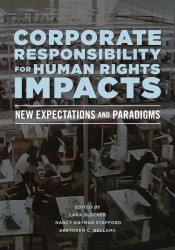Crises reveal what organizations value. Whether a business demonstrates corporate responsibility during the COVID-19 pandemic, or fails to do so, can determine if the company and its leaders emerge from this crisis with the trust and confidence of their stakeholders intact.
Definitions of corporate responsibility have evolved from an exclusive focus on shareholder returns, to the acknowledgment by businesses of a much broader group of corporate stakeholders and range of responsibilities. Acting responsibly today means more than legal compliance and goes beyond corporate philanthropy.
At its core, corporate responsibility means meeting stakeholder expectations for responsible conduct. Meeting both the financial and non-financial expectations of its investors, customers, employees, business partners, suppliers, regulators, and the communities where it operates, helps a company to manage risk, protect its reputation, attract and retain employees, grow its markets, and sustain its financial performance.
Demonstrating corporate responsibility is a key challenge for business leaders in the best of times. As my colleague Helio Fred Garcia observes, the COVID-19 crisis comprises simultaneous crises (public health, business, economic, information, governance, social, mental health) of unprecedented scope that require a multi-dimensional leadership response. [1]
Unprecedented in its scope, the COVID-19 pandemic is an opportunity for companies and their leaders to live their values by acting responsibly.
When navigating next steps during the pandemic, business leaders should keep in mind key principles for demonstrating corporate responsibility.
Understand the potential impacts of your crisis response.
Responsible organizations understand the potential impacts of their actions and take steps to “do no harm.” Business leaders determining how to respond to the pandemic need to assess the potential impacts on all company stakeholders.
Well-managed organizations plan for foreseeable crises. Companies that engage in meaningful crisis planning likely had a standby pandemic crisis plan they could draw upon as they began to address COVID-19. Effective crisis management plans identify potentially affected stakeholders and catalogue relevant corporate policies for high priority scenarios. A global manufacturer’s pandemic planning, for example, would have considered the business impact of supply chain interruptions, triggers to suspend executive travel, and criteria for allowing employees to work remotely.
When evaluating next steps, companies should seek to “do no harm” by preventing or mitigating harmful impacts.
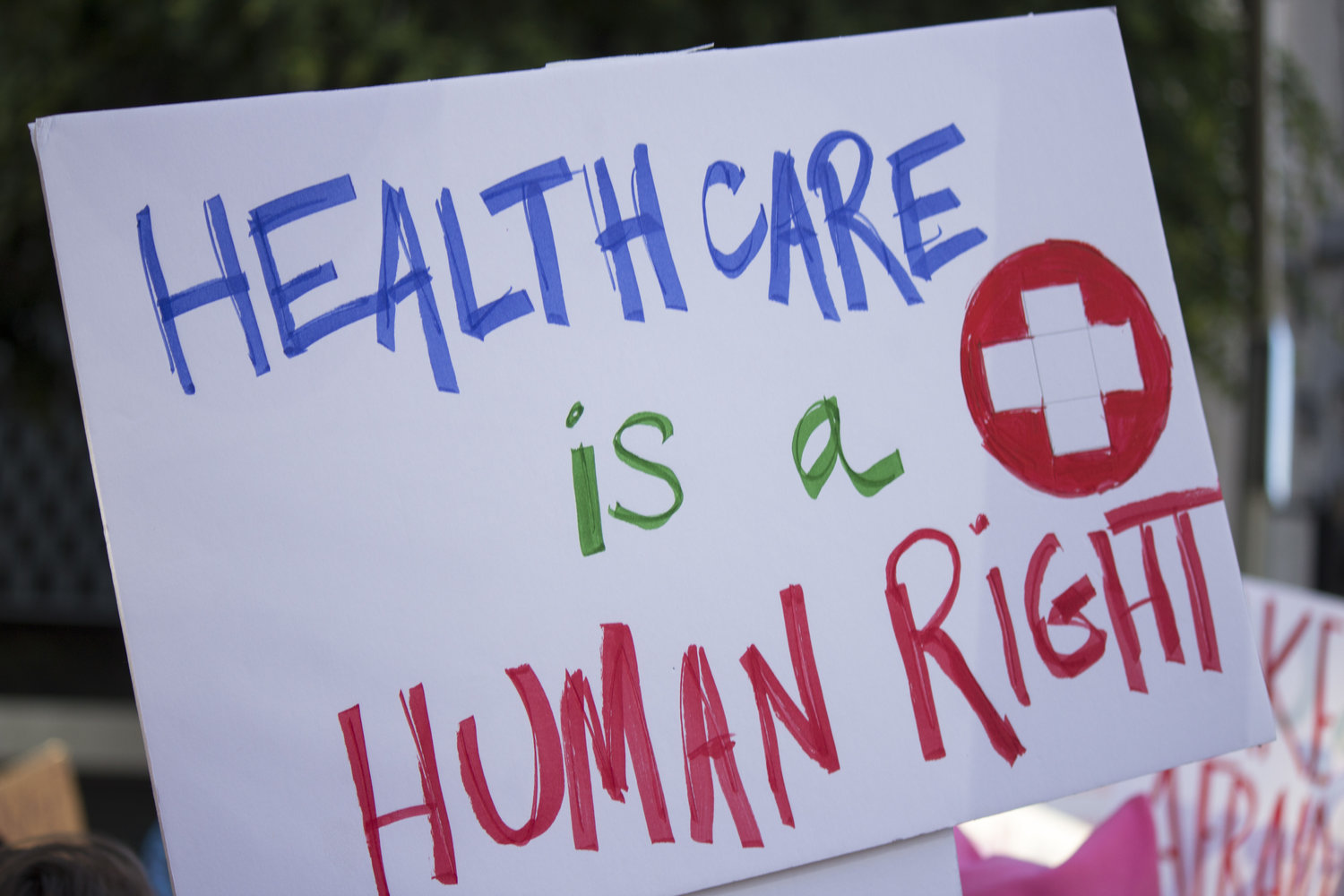 Companies without a pandemic crisis plan in place can still identify potential impacts to guide their response. Enterprise-wide impact mapping and assessment can help an organization prioritize next steps. By applying a human rights impact lens to its operations and stakeholders, [2] a hospital system, for example, might prioritize securing adequate personal protective equipment to ensure the health and safety of its healthcare workers; expanding diagnostic testing among vulnerable communities to ensure nondiscrimination in patient access to healthcare, and communicating information about the virus and medical capacity to ensure public access to reliable and timely information.
Companies without a pandemic crisis plan in place can still identify potential impacts to guide their response. Enterprise-wide impact mapping and assessment can help an organization prioritize next steps. By applying a human rights impact lens to its operations and stakeholders, [2] a hospital system, for example, might prioritize securing adequate personal protective equipment to ensure the health and safety of its healthcare workers; expanding diagnostic testing among vulnerable communities to ensure nondiscrimination in patient access to healthcare, and communicating information about the virus and medical capacity to ensure public access to reliable and timely information.
When evaluating next steps, companies should seek to “do no harm” by preventing or mitigating harmful impacts. Apparel companies that have cancelled supplier contracts for goods during the pandemic face criticism for triggering layoffs of the factory workers worldwide that make their products, often among the groups most vulnerable to COVID-19. A quick stakeholder impact assessment would have flagged the risk of harming supply chain workers. Responsible international brands have sought to protect workers by honoring their supplier contracts during the pandemic.
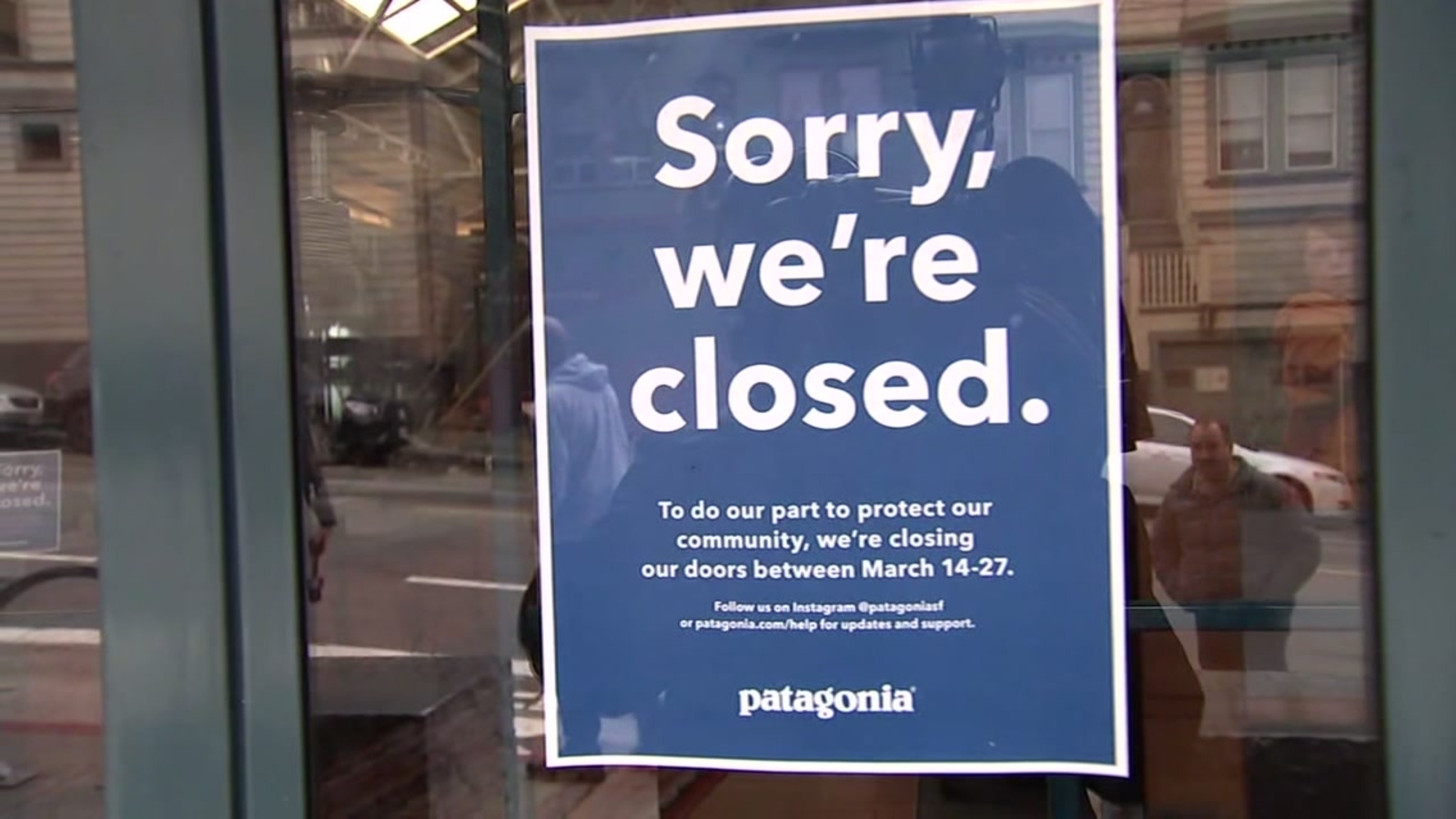 Similarly, companies that provide paid sick leave are protecting the health of employees, customers and the general public alike. When the California-based retailer Patagonia voluntarily closed its stores nationwide while continuing to pay its employees, its CEO and President, Rose Marcario stated, “It’s everyone’s responsibility to help stop the spread of this virus.”
Similarly, companies that provide paid sick leave are protecting the health of employees, customers and the general public alike. When the California-based retailer Patagonia voluntarily closed its stores nationwide while continuing to pay its employees, its CEO and President, Rose Marcario stated, “It’s everyone’s responsibility to help stop the spread of this virus.”
“It’s everyone’s responsibility to help stop the spread of this virus.”
− Rose Marcario, CEO and President, Patagonia Inc.
Anticipate changing stakeholder expectations.
Meeting stakeholder expectations demonstrates corporate responsibility and earns the trust of those who matter most to your business. All stakeholders expect a responsible organization to care about the multiple dimensions of the COVID-19 crisis and to take appropriate action.
What stakeholders expect a responsible company to do will change. The current pandemic is a dynamic situation that calls for decision-makers to adapt policies to new information. Responsible companies meet stakeholders where they are and adjust accordingly.
Customers, for example, expect essential businesses that remain open (or that reopen) to follow public health guidelines, to protect their employees, and to protect vulnerable community members. Obeying the law is the just the starting point.
 On my first trip to the grocery store after a statewide “stay-at-home” order had been issued, the store had placed limits on the number of scarce items that customers could buy, like cleaning products and milk. Employees were working hard to keep shelves stocked. Two weeks later, consistent with evolving public health guidance, the store was limiting the number of customers allowed inside at once, plexiglass shields had been placed between checkout workers and customer payment stations, and all store employees wore gloves and masks. The grocery chain had also adopted an industry-wide practice reserving its opening hour for elderly customers. On my most recent shopping trip, the store had instituted “one-way” aisles to ensure physical distancing and all customers were required to wear face coverings.
On my first trip to the grocery store after a statewide “stay-at-home” order had been issued, the store had placed limits on the number of scarce items that customers could buy, like cleaning products and milk. Employees were working hard to keep shelves stocked. Two weeks later, consistent with evolving public health guidance, the store was limiting the number of customers allowed inside at once, plexiglass shields had been placed between checkout workers and customer payment stations, and all store employees wore gloves and masks. The grocery chain had also adopted an industry-wide practice reserving its opening hour for elderly customers. On my most recent shopping trip, the store had instituted “one-way” aisles to ensure physical distancing and all customers were required to wear face coverings.
Some of these measures were mandated; some were voluntary. All track what the store’s customers, employees, and community would expect a responsible grocery store to do under the circumstances based on available information.
Conversely, companies that act contrary to stakeholder expectations for responsible conduct, even if the actions are legal and contribute to the bottom line, risk losing the trust of customers, investors, and regulators. Large public corporations that secured millions of dollars of loans under the Paycheck Protection Program intended for small businesses, for example, have endured substantial public criticism prompting some companies to return the funds. The angry reaction should not have been a surprise for corporate leaders paying attention to stakeholder expectations.
Philanthropy is not a substitute for responsibility.
Stakeholders expect responsible companies with the resources to do so, to give money and to tap their expertise during a crisis. Many businesses, large and small, have responded to the pandemic by providing financial or in-kind support to healthcare workers, to small businesses, and to international and community organizations addressing the impacts of COVID-19 on vulnerable populations.
Google has pledged more than $800 million to support small businesses, health organizations and governments, and health workers on the frontline of the global pandemic. The company’s contribution includes $250 million in advertising credits to help the World Health Organization and more than 100 government agencies disseminate information on how to prevent the spread of COVID-19. Citigroup is donating a total of $15 million to the United Nations Foundation and World Health Organization’s COVID-19 Solidarity Response Fund, to No Kid Hungry to support emergency food-distribution programs in the United States, and to international efforts in countries that are severely affected by the pandemic. The British and Dutch consumer goods multinational Unilever is contributing €100 million through donations of soap, sanitizer, bleach and food, including adapting its manufacturing lines to produce sanitizer for use in hospitals.
All of these efforts are welcome.
Philanthropy, however, does not excuse a company from acting responsibly elsewhere in its operations.
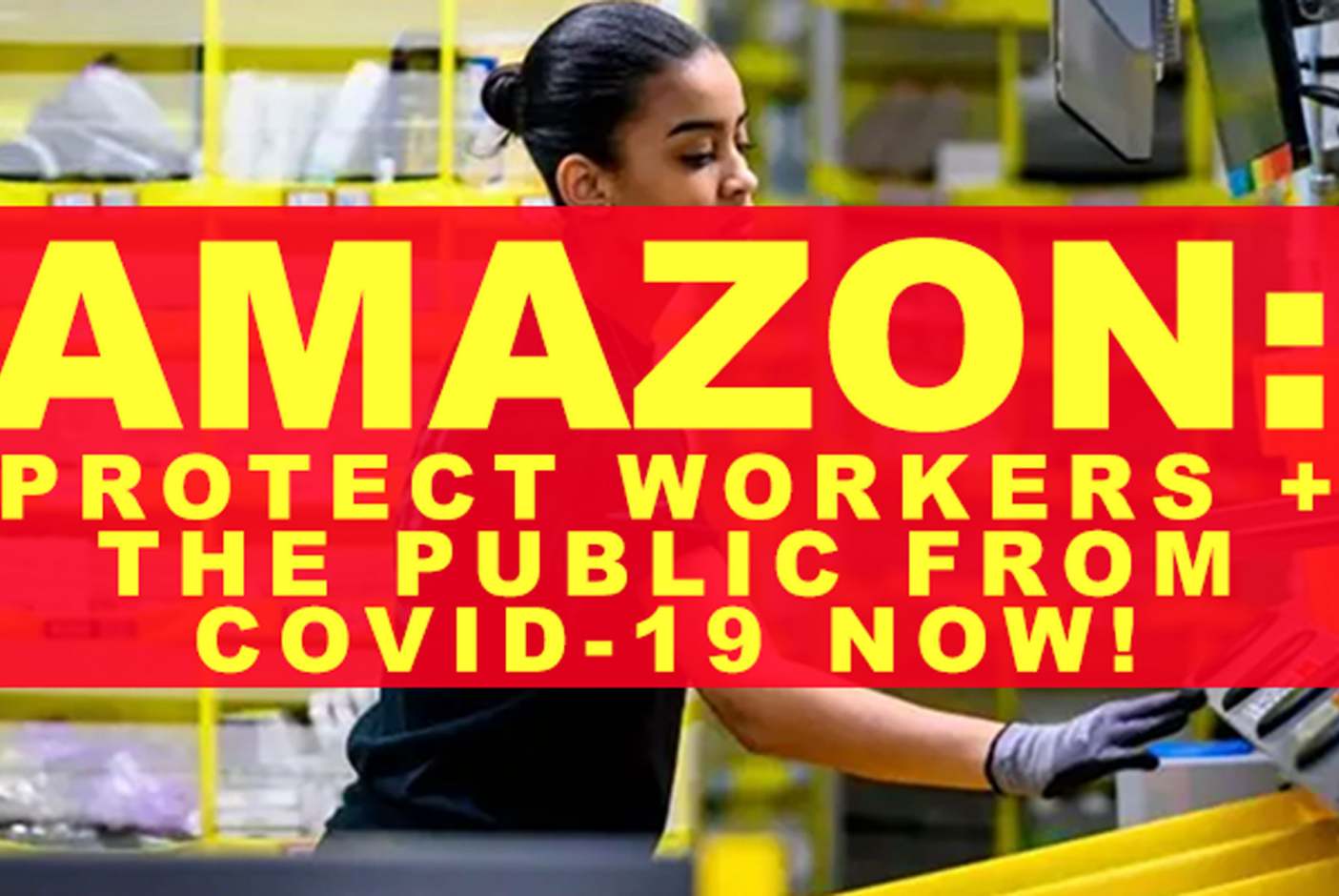
Source: www.ethicalconsumer.org
Amazon faces intense criticism for failing to adequately protect its employees from the outset of the pandemic; resisting paid sick time, hazard pay, and health benefits for part-time employees; and retaliating against a warehouse worker who protested working conditions. Since then, Amazon has enhanced its health and safety practices, hired 175,000 additional employees, and donated thousands of laptops to Seattle public school students, among other efforts. CEO and Founder Jeff Bezos announced a $100 million gift to Feeding America. The company’s philanthropic responses alone, however, are proving insufficient to meet stakeholder expectations for responsible conduct. Employees continue to protest Amazon’s working conditions and policies, and regulators have launched investigations into the company’s labor practices.
McDonald’s Corporation has donated over $3 million in food to support local communities during the COVID-19 pandemic; yet, more than half a million McDonald’s workers without access to paid sick leave are serving food nationwide.
Leading companies act and give responsibly.
Business leaders are called to act when government fails to do so.
The COVID-19 pandemic has triggered a crisis of government capacity and leadership. Corporate responsibility today means filling these governance gaps.
Business leaders should be prepared to address the governmental pandemic response by speaking out against harmful policies and advocating for responsible solutions.
Responsible companies in the United States are meeting public needs that the federal government has failed to address. Companies in many different sectors are stepping in to manufacture, purchase, and distribute personal protective equipment; to accelerate production of diagnostic tests and medical equipment like ventilators; and to disseminate accurate data on the virus and its spread. Microsoft voluntarily told its employees to work from home in support of local health authorities’ efforts to communicate the urgency of the looming pandemic in Seattle. Apple and Google are partnering to develop contact tracing technology to help governments and health agencies reduce the spread of the virus.
Stakeholders increasingly expect corporate leaders to speak out on public policy issues, [3] such as gun violence and immigration policy, [4] when government fails to act or causes harm. COVID-19 is accelerating this trend. In his annual letter to CEOs, Larry Fink, the chairman and CEO of BlackRock, the world’s largest asset manager, noted last year that “stakeholders are pushing companies to wade into sensitive social and political issues — especially as they see governments failing to do so effectively.” Fink called on CEOs to demonstrate leadership and corporate commitment to “to the countries, regions, and communities where they operate, particularly on issues central to the world’s future prosperity.” No issue meets these criteria right now more than the multi-dimensional COVID-19 crisis.
CEOs that understand and anticipate the potential impacts on of all of their company’s stakeholders are not rushing to reopen.
Business leaders should be prepared to address the governmental pandemic response by speaking out against harmful policies and advocating for responsible solutions. Consumer product brands have had to correct inaccurate information about disinfectants. Many businesses in the United States must now decide whether to reopen against data-driven public health guidance. CEOs that understand and anticipate the potential impacts on of all of their company’s stakeholders are not rushing to reopen.
Unprecedented in its scope, the COVID-19 pandemic presents a unique opportunity for companies and their leaders to live their values by acting responsibly.
Logos Senior Advisor Anthony Ewing counsels executives on corporate responsibility and works with clients to establish and strengthen crisis management programs. He teaches a graduate seminar on corporate responsibility at Columbia Law School.
Notes
[1] Helio Fred Garcia, “Leadership, Communication, and COVID-19,” (Mar. 25, 2020) https://logosconsulting.net/leadership-communication-and-covid-19/.
[2] Anthony Ewing, “Integrating Human Rights into Crisis Planning,” A Good Practice Note endorsed by the United Nations Global Compact Human Rights and Labour Working Group (6 October 2015), https://www.unglobalcompact.org/docs/issues_doc/human_rights/Human_Rights_Working_Group/crisis-planning-GPN.pdf.
[3] Aaron K. Chatterji and Michael W. Toffel, “The New CEO Activists,” Harvard Business Review (January–February 2018), https://hbr.org/2018/01/the-new-ceo-activists.
[4] Anthony Ewing, “Business and Human Rights: Lessons for Managing the Trump Presidency,” blog post, February 13, 2017, https://logosconsulting.net/business-and-human-rights-lessons-for-managing-the-trump-presidency/.

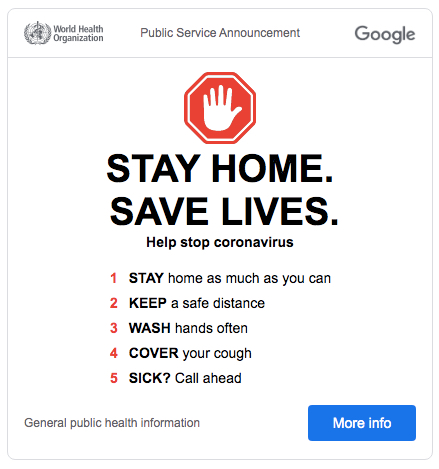
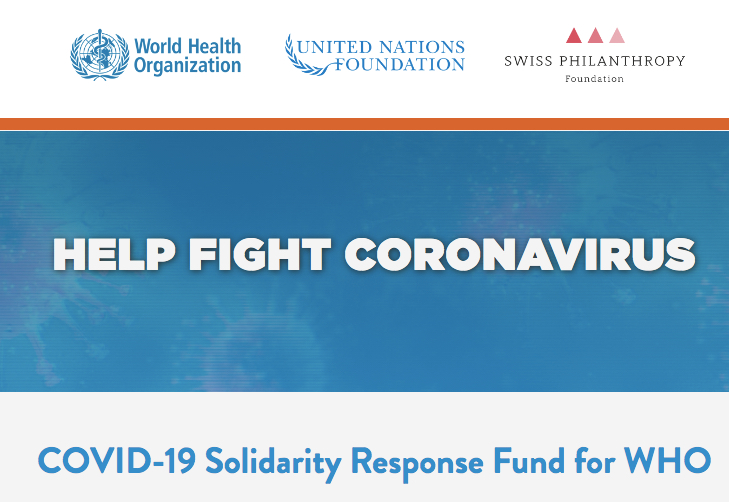
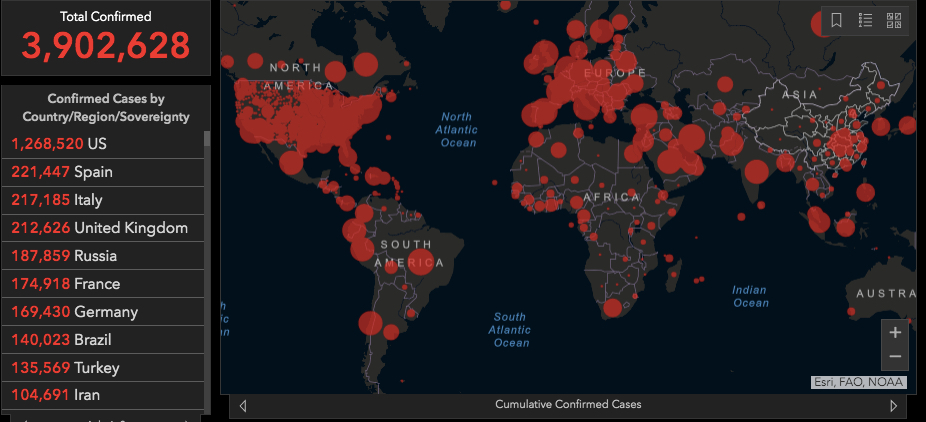
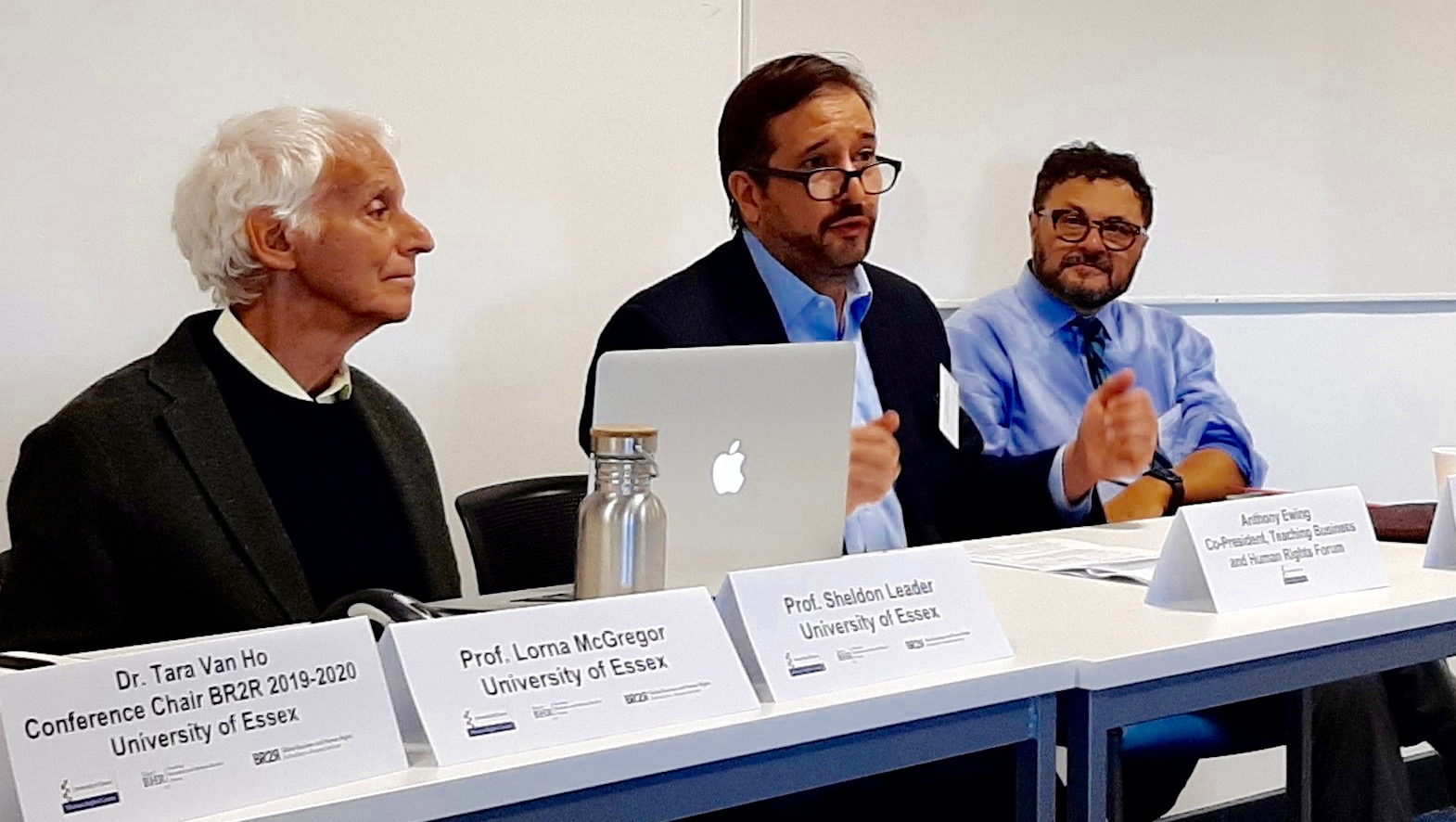 Logos Senior Fellow
Logos Senior Fellow 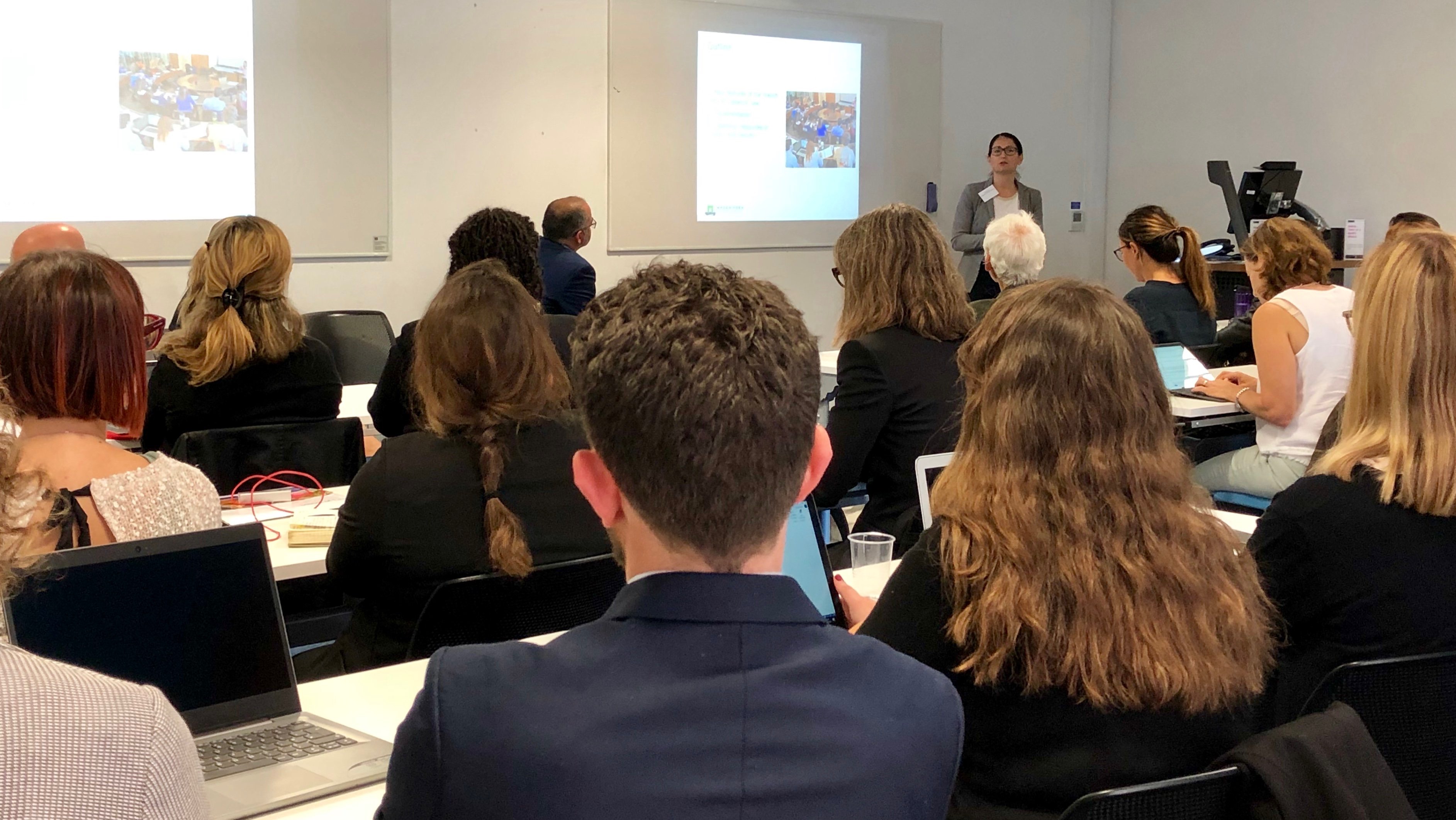 In 2011, Ewing co-founded the
In 2011, Ewing co-founded the 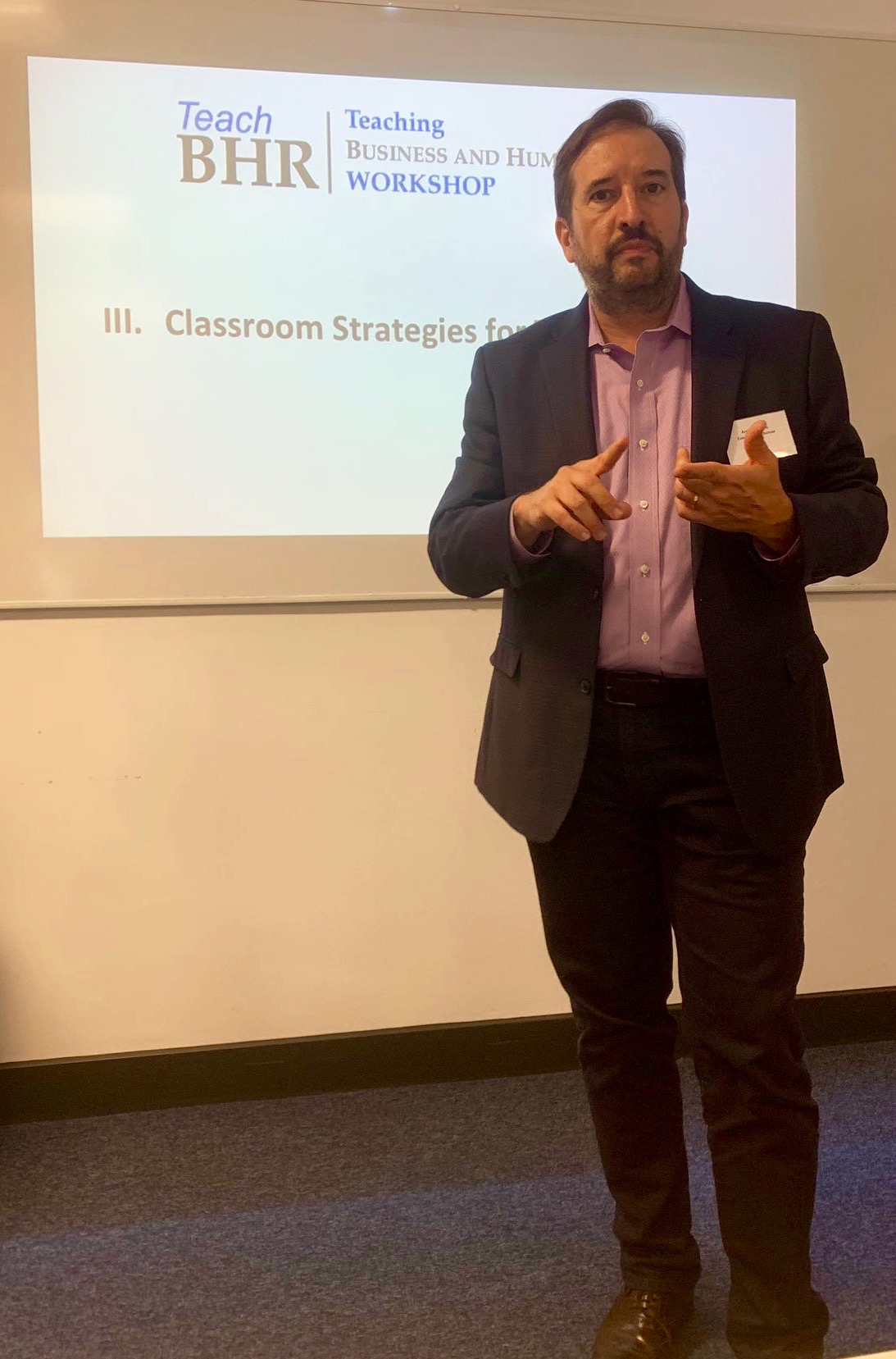 Ewing has taught the course Transnational Business and Human Rights at Columbia University since 2001. In 2019, he launched an advanced seminar – Managing Human Rights – at Columbia Law School. In the Classroom Strategies session, led by Ewing, he noted that
Ewing has taught the course Transnational Business and Human Rights at Columbia University since 2001. In 2019, he launched an advanced seminar – Managing Human Rights – at Columbia Law School. In the Classroom Strategies session, led by Ewing, he noted that


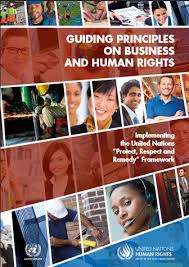 “
“
 The business and human rights landscape in the United States shifted dramatically with the election of Donald Trump.
The business and human rights landscape in the United States shifted dramatically with the election of Donald Trump.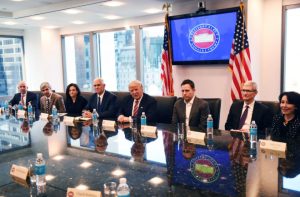
 Internationally recognized human rights threatened by proposed actions of the Trump administration
Internationally recognized human rights threatened by proposed actions of the Trump administration  Companies operating in the United States should consider the U.S. Constitution together with the international human rights instruments to define their potential human rights impacts. Most internationally recognized human rights are protected in some form under United States law at the federal, state and/or local level. The United States Constitution’s Bill of Rights, for example, enumerates rights including the free exercise of religion (First Amendment): the freedoms of speech, of the press, and of assembly (First Amendment); freedom from unreasonable searches and seizures (Fourth Amendment); the right to vote (Fifteenth, Nineteenth, Twenty-Fourth, Twenty-Sixth Amendments); and the rights to citizenship, due process and equal protection of the law (Fourteenth Amendment).
Companies operating in the United States should consider the U.S. Constitution together with the international human rights instruments to define their potential human rights impacts. Most internationally recognized human rights are protected in some form under United States law at the federal, state and/or local level. The United States Constitution’s Bill of Rights, for example, enumerates rights including the free exercise of religion (First Amendment): the freedoms of speech, of the press, and of assembly (First Amendment); freedom from unreasonable searches and seizures (Fourth Amendment); the right to vote (Fifteenth, Nineteenth, Twenty-Fourth, Twenty-Sixth Amendments); and the rights to citizenship, due process and equal protection of the law (Fourteenth Amendment). Companies can manage the risks of contributing or being connected to government actions that violate human and Constitutional rights using the same concepts and tools that apply a human rights lens to their non-U.S. operations. In the Trump era, companies must exercise due diligence to identify, prevent and mitigate the domestic human rights impacts of their operations and business relationships in the United States.
Companies can manage the risks of contributing or being connected to government actions that violate human and Constitutional rights using the same concepts and tools that apply a human rights lens to their non-U.S. operations. In the Trump era, companies must exercise due diligence to identify, prevent and mitigate the domestic human rights impacts of their operations and business relationships in the United States. When government actions threaten or harm employees, companies must act to support and protect them. The priority for companies in the wake of the immigration ban has been to identify affected employees, ensure their safety, and provide assistance, such as travel, legal and financial support. Providing employees with clear, accurate information about the immigration ban and its impact, so that individuals can take action to protect themselves and their families, is a first step companies can take to meet their responsibility to employees. Employees are the stakeholder group companies can help most directly, but businesses must also consider how to support and protect others connected to their particular business, such as customers, business partners and the communities where they operate.
When government actions threaten or harm employees, companies must act to support and protect them. The priority for companies in the wake of the immigration ban has been to identify affected employees, ensure their safety, and provide assistance, such as travel, legal and financial support. Providing employees with clear, accurate information about the immigration ban and its impact, so that individuals can take action to protect themselves and their families, is a first step companies can take to meet their responsibility to employees. Employees are the stakeholder group companies can help most directly, but businesses must also consider how to support and protect others connected to their particular business, such as customers, business partners and the communities where they operate.
 When companies are unable to stop harmful policies and actions by others, they can seek to mitigate the negative impact on their employees, customers, business partners and communities. Companies have sought to comply with the spirit of international human rights standards outside the United States by protecting rights “within the factory walls.” Brands sourcing from factories in China, for example, where independent trade unions are banned, have promoted the creation of factory worker councils to bring concerns over working conditions to management. Businesses must consider ways to ensure that their U.S. workplaces provide safe spaces where individual rights are protected. Adopting workplace policies reinforcing a commitment to non-discrimination and prohibiting the harassment of any individual based on national origin or immigration status is one concrete way to meet the corporate responsibility to respect rights.
When companies are unable to stop harmful policies and actions by others, they can seek to mitigate the negative impact on their employees, customers, business partners and communities. Companies have sought to comply with the spirit of international human rights standards outside the United States by protecting rights “within the factory walls.” Brands sourcing from factories in China, for example, where independent trade unions are banned, have promoted the creation of factory worker councils to bring concerns over working conditions to management. Businesses must consider ways to ensure that their U.S. workplaces provide safe spaces where individual rights are protected. Adopting workplace policies reinforcing a commitment to non-discrimination and prohibiting the harassment of any individual based on national origin or immigration status is one concrete way to meet the corporate responsibility to respect rights.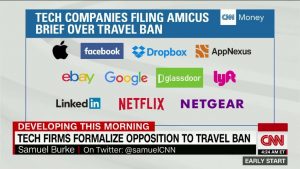 In countries where laws explicitly contradict international human rights standards, companies have found ways to minimize their connection to human rights violations by others. In China, Brazil and elsewhere, for example, foreign technology firms have insisted upon valid judicial orders before acquiescing to demands from government officials to turn over personally identifiable user information for questionable purposes. Companies may face similar situations in the United States if asked by law enforcement authorities to turn over personal information related to their employees’ or customers’ national origin, immigration status or religious beliefs. Businesses can exhaust all available legal processes, as Apple successfully refused to collaborate with the FBI to unlock encrypted iPhones, and challenge the legality of government actions in court, as some companies are now doing in opposition to the immigration ban. Companies can also communicate publicly about government actions that violate rights, using transparency to highlight actual and potential rights violations. Since 2009, for example, Google has published a “
In countries where laws explicitly contradict international human rights standards, companies have found ways to minimize their connection to human rights violations by others. In China, Brazil and elsewhere, for example, foreign technology firms have insisted upon valid judicial orders before acquiescing to demands from government officials to turn over personally identifiable user information for questionable purposes. Companies may face similar situations in the United States if asked by law enforcement authorities to turn over personal information related to their employees’ or customers’ national origin, immigration status or religious beliefs. Businesses can exhaust all available legal processes, as Apple successfully refused to collaborate with the FBI to unlock encrypted iPhones, and challenge the legality of government actions in court, as some companies are now doing in opposition to the immigration ban. Companies can also communicate publicly about government actions that violate rights, using transparency to highlight actual and potential rights violations. Since 2009, for example, Google has published a “ Companies in diverse sectors are speaking out against the immigration ban. In response to government actions targeting Muslims, immigrants and refugees, companies are directing corporate resources toward organizations defending these groups and their rights. Multinational companies have learned that the corporate responsibility to respect human rights often requires advocating for governments to fulfill their own human rights obligations. Companies have criticized rights violations by governments around the world and opposed harmful government policies privately, publicly and in partnership with others through business associations, coalitions and advocacy networks. More businesses will need to become public rights advocates in the United States.
Companies in diverse sectors are speaking out against the immigration ban. In response to government actions targeting Muslims, immigrants and refugees, companies are directing corporate resources toward organizations defending these groups and their rights. Multinational companies have learned that the corporate responsibility to respect human rights often requires advocating for governments to fulfill their own human rights obligations. Companies have criticized rights violations by governments around the world and opposed harmful government policies privately, publicly and in partnership with others through business associations, coalitions and advocacy networks. More businesses will need to become public rights advocates in the United States.  Corporate advocacy is most effective when it reinforces company values. U.S. companies in recent years have publicly opposed state laws in the United States that would permit discrimination based on sexual preference. Since the election, U.S. companies have
Corporate advocacy is most effective when it reinforces company values. U.S. companies in recent years have publicly opposed state laws in the United States that would permit discrimination based on sexual preference. Since the election, U.S. companies have 